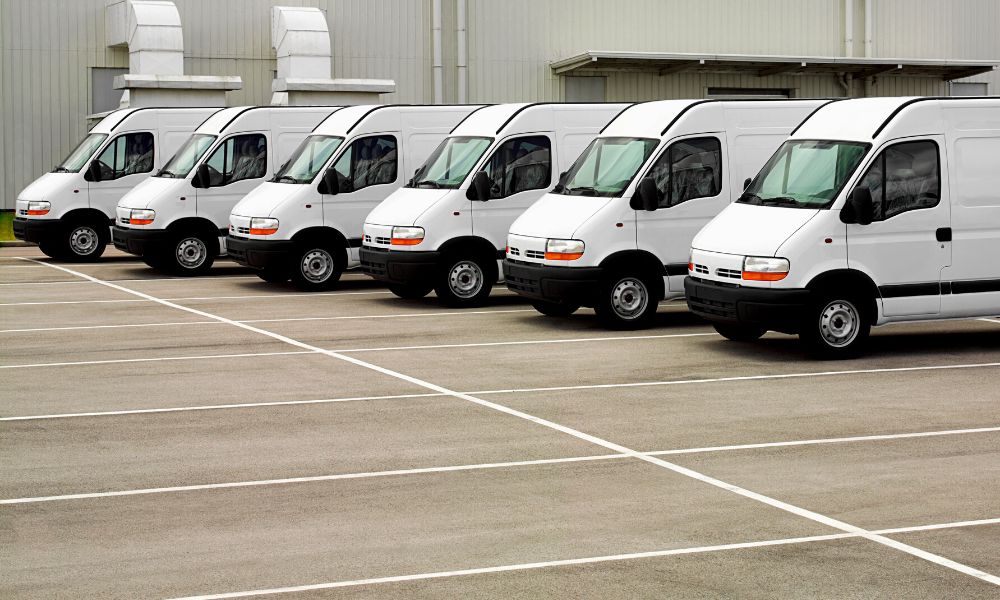7 Tips For Getting The Most Out Of Vehicle Fleet Tracking Devices

Business vehicle fleet tracking devices have revolutionised the way businesses manage their fleets. By providing real-time data, these tracking devices have made it easier than ever to keep an eye on every vehicle in a fleet and make sure that they are being used as efficiently as possible. In this blog post, we will be looking at 7 tips for getting the most out of your vehicle fleet tracking devices. We’ll explore the core focus areas that commercial fleet managers need to be aware of in order to ensure maximum efficiency. Read on to find out how you can make the most out of your vehicle fleet tracking devices.
1) Keep an Eye on Fuel Spend
Fuel is one of the largest expenses for commercial fleets. With vehicle fleet tracking north wales, it is possible to monitor and manage fuel costs in real-time. Using a fleet management system with features such as mileage tracking and fuel card integration, fleet managers can set alerts to be notified of any irregular fuel spending patterns.
For example, if a driver has filled up the vehicle more than a certain number of times in a given week, an alert will be sent to the manager. This can help identify unnecessary costs and help identify trends that could lead to saving money in the long run. Additionally, vehicle tracking systems provide detailed fuel consumption reports that can be used to measure the performance of different vehicles or drivers.
By keeping an eye on fuel spend, commercial fleets can better manage their costs and keep their budgets in check. With the help of vehicle fleet tracking devices, this task becomes much simpler and more accurate.
2) Monitor Your Driver’s Hours
Monitoring driver’s hours is an essential part of commercial fleet management, as it helps businesses ensure their drivers are compliant with the relevant laws and regulations. With the right vehicle fleet tracking device, it’s easy to monitor your driver’s hours and ensure they don’t exceed their allotted driving time.
Fleet tracking devices are designed to help you track the location and progress of your vehicles, as well as providing real-time visibility into the activities of your drivers. This allows you to accurately measure and monitor driver’s hours and ensure they remain compliant with the relevant rules and regulations.
You can also set up automatic alerts for when drivers exceed their allotted hours, which will notify you so that you can take action if necessary. These alerts also help to reduce the risk of driver fatigue, which can be incredibly dangerous and cause major accidents if not managed correctly.
3) Locate Your Vehicles in Real-Time
Tracking the location of your fleet in real-time can help you optimise your resources, save money on fuel costs, and reduce response times. With the right fleet tracking devices, you can easily access your vehicle’s exact location from any device with an internet connection.
For instance, if you need to send an employee to a client in a different city, you can quickly determine which of your vehicles is closest to that destination. This can result in significant savings on fuel costs and lower response times for service calls. You can also check on driver behaviour and make sure they are taking the most efficient route to their destination.
4) Get Automatic Alerts If There’s an Issue
Alerts are an invaluable tool for fleet managers. When you have a fleet of vehicles, it’s impossible to know exactly what is going on at all times. However, with automatic alerts, you can be quickly informed if there is a problem. Alerts allow you to stay on top of any issues that arise, which can help you avoid potentially costly mistakes or delays.
5) Improve Your Customer Service
Having a vehicle fleet tracking system in place can drastically improve the customer service you offer. For starters, you’ll be able to locate your drivers quickly and accurately. This means you can deliver on-time arrivals with confidence and make sure your customers receive their orders or services within the promised window. Additionally, customers can easily keep track of their delivery, so they know exactly when it will arrive.
6) Save Time and Money on Maintenance
Maintenance is a critical part of fleet management and it’s important to have a system in place to ensure that vehicles are regularly serviced and checked. With vehicle fleet tracking devices, you can easily keep track of vehicle maintenance schedules and plan services in advance.
Using a fleet tracking device, you can proactively identify problems before they become major issues. This not only reduces the amount of time it takes to diagnose and fix a problem but also saves money on costly repairs. Not only that, but you can also receive real-time alerts when something isn’t working properly.
7) Automate Your Reporting
For fleet managers, one of the most important aspects of their job is to accurately report on the health and performance of their fleet. Automated reporting also provides a way to track trends and look for areas of improvement. With automated reporting, fleet managers can quickly identify what’s working and what isn’t, allowing them to make better decisions for their business.
